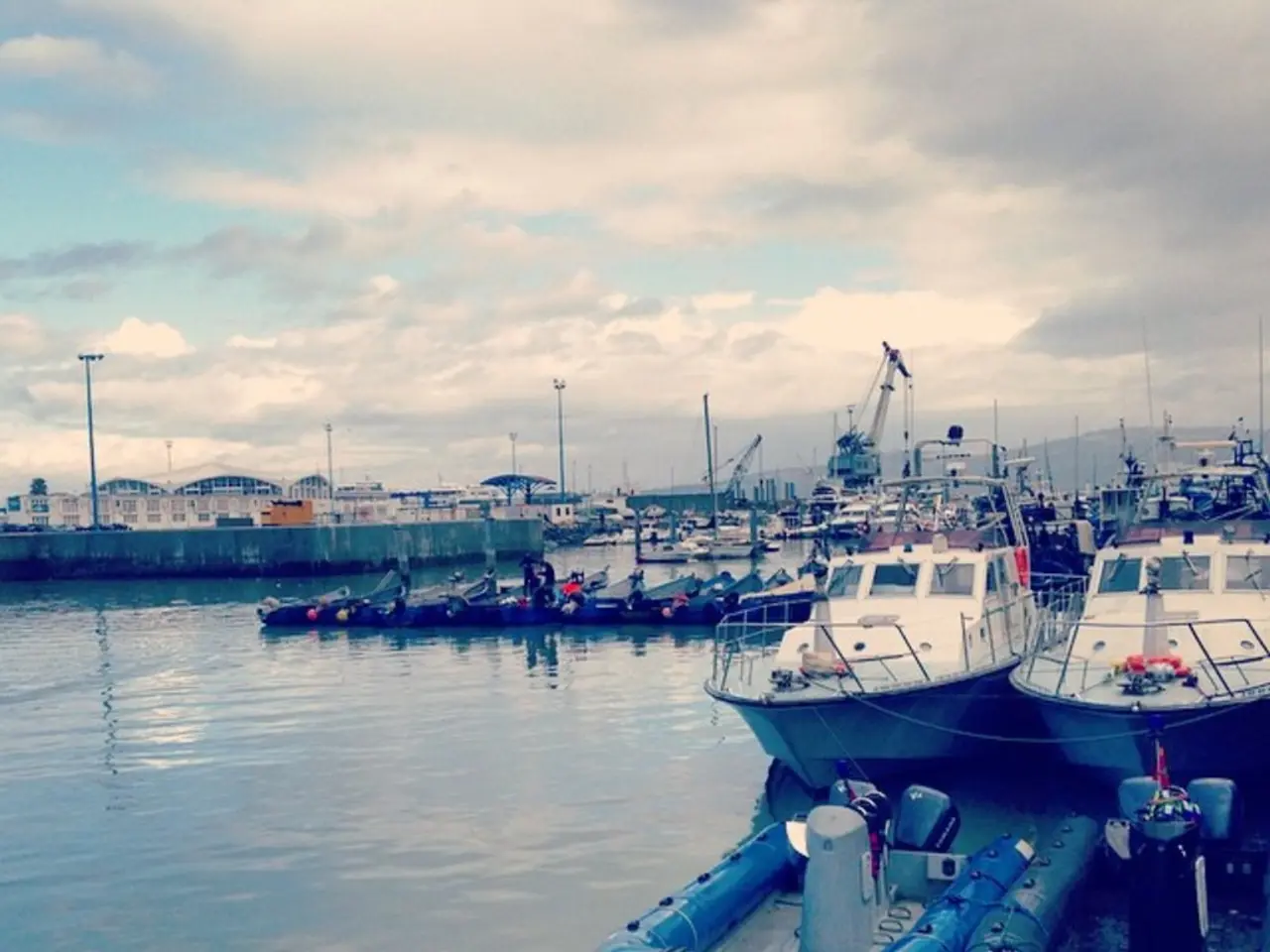Drought Woes in Germany: Cities and Regions Face Water Restrictions
Drought-related prohibition on water extraction - Urban areas implement measures due to water scarcity
Germany is currently grappling with a relentless drought, resulting in various cities and regions imposing water usage restrictions. Rivers, lakes, and wells in several regions are off-limits for water extraction — often during daylight hours.
Case in point: Brandenburg has eight districts enforcing surface water extraction restrictions already, such as Cottbus and the Spree-Neiße district, with more districts preparing similar measures. Similarly, areas in Saxony-Anhalt and North Rhine-Westphalia, including the Rheinisch-Bergischer district, Dessau-Roßlau, and Bonn, have already imposed water extraction bans due to critically low water levels.
Here's a quick roundup of news from Hamm, away from the drought and water restrictions:
- A missing 73-year-old person has been found after an intensive police search in Hamm.
- Hamm-Rhynern celebrated its 1025th birthday with a spectacular party.
- Kurparkfestival800 in Hamm features three fabulous festivals.
For all Hamm news, check this out.
Meanwhile, the drought monitor of the Helmholtz Centre for Environmental Research indicates that the soil layers in much of Germany have been getting dangerously dry, despite occasional storms in the east. This is because droughts, precipitated by global warming[1][2][3], are becoming more frequent and occurring at more locations worldwide.
Drought Impact in Germany
- Agri-crisis: The drought has led to severe rainfall deficits, causing soil moisture shortages, and halting plant growth, threatening crop yields—particularly for winter and spring crops soon to be sown[3][4].
- Water Supply: With high temperatures and insufficient precipitation persisting, especially in Central, Northern, and Eastern Europe, including Germany, reservoirs and water reserves have drastically dwindled[4]. Although some rain in June improved topsoil moisture, meaningful rainfall is needed to restore river flows and reservoir levels[4].
- Navigation: Lowered water levels in key rivers like the Rhine have affected inland shipping and navigation, posing challenges to transport and local businesses[2].
- Ecosystems: The extended drought and heatwaves jeopardize ecosystems, inducing vegetation stress in Eastern Europe and stunting plant growth in affected regions[3].
Affected Regions
- Germany: Central and northern areas of Germany are particularly affected, with persistent rainfall deficits and temperature fluctuations impacting agriculture and water resources[3][4].
- Central and Eastern Europe: Countries in these regions are also coping with large-scale drought, harming agriculture, ecosystems, and water management[1][3].
European Response
- The European Commission aims to cut freshwater consumption by at least 10% by 2030 across the EU to tackle growing drought risks and water scarcity[1].
- The European Investment Bank plans to invest €15 billion from 2025 to 2027 to improve water infrastructure, focusing on enhancing water use efficiency and increasing resilience to drought[1].
In summary, Germany is facing mounting water restrictions as a result of an enduring and extensive drought, affecting water supply, agriculture, and river navigation. Significant challenges remain to replenish water reserves and promote sustainable water usage amidst growing climatic pressures. These developments occur within an expanse of European efforts to address drought impacts and invest in water management for a more resilient future[1][2][3][4].
- The ongoing drought in Germany is not only affecting local water resources but also causing concerns in environmental science, as it is a manifestation of climate-change effects.
- The science of climate-change suggests that droughts, such as the one currently affecting Germany, are becoming more frequent worldwide due to global warming, emphasizing the need for sustainable weather management strategies.








